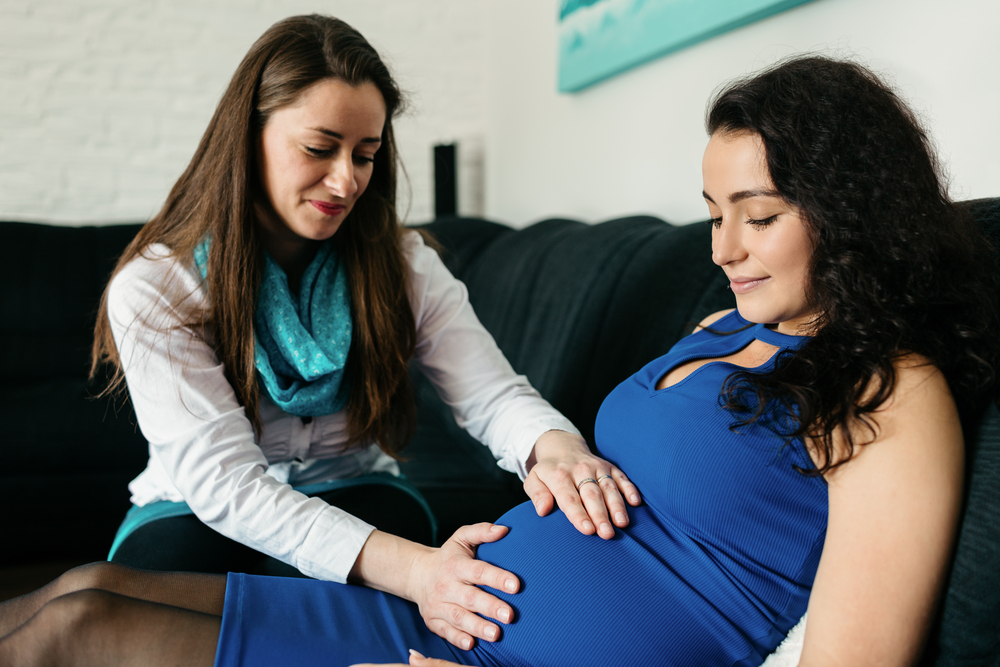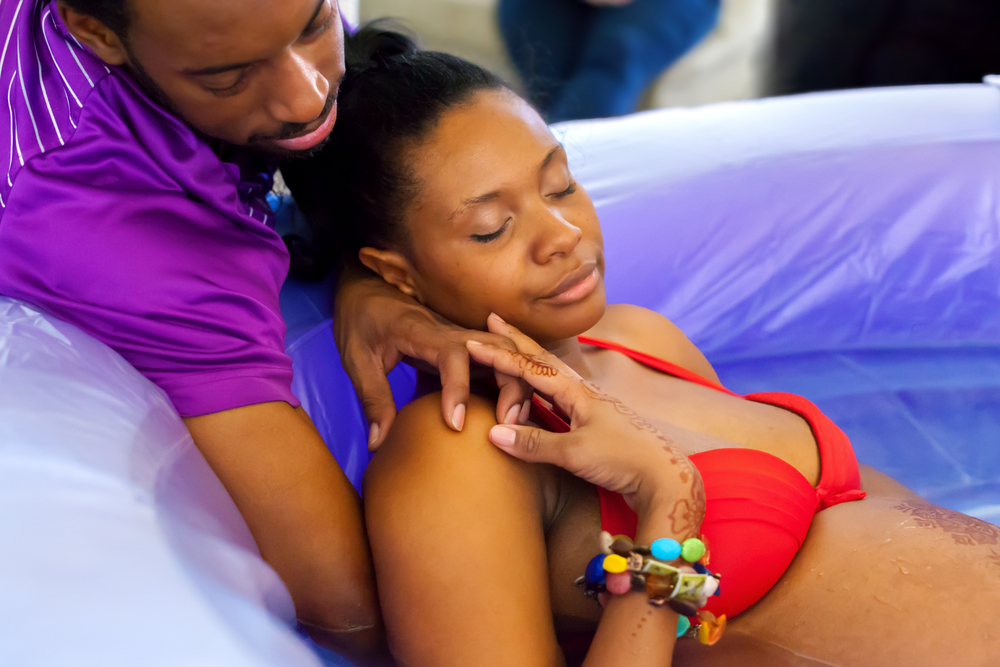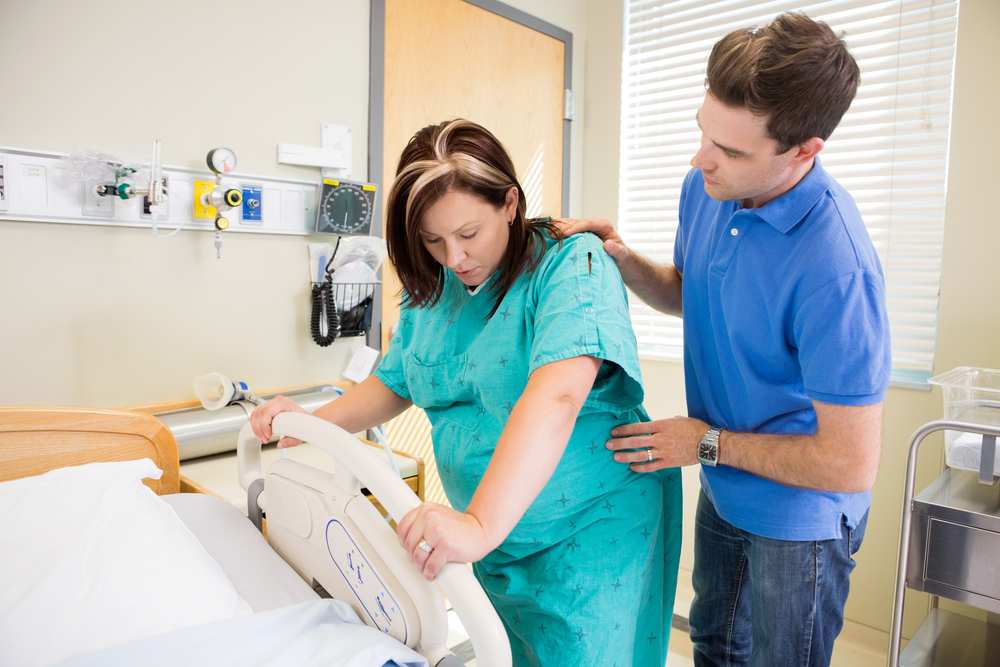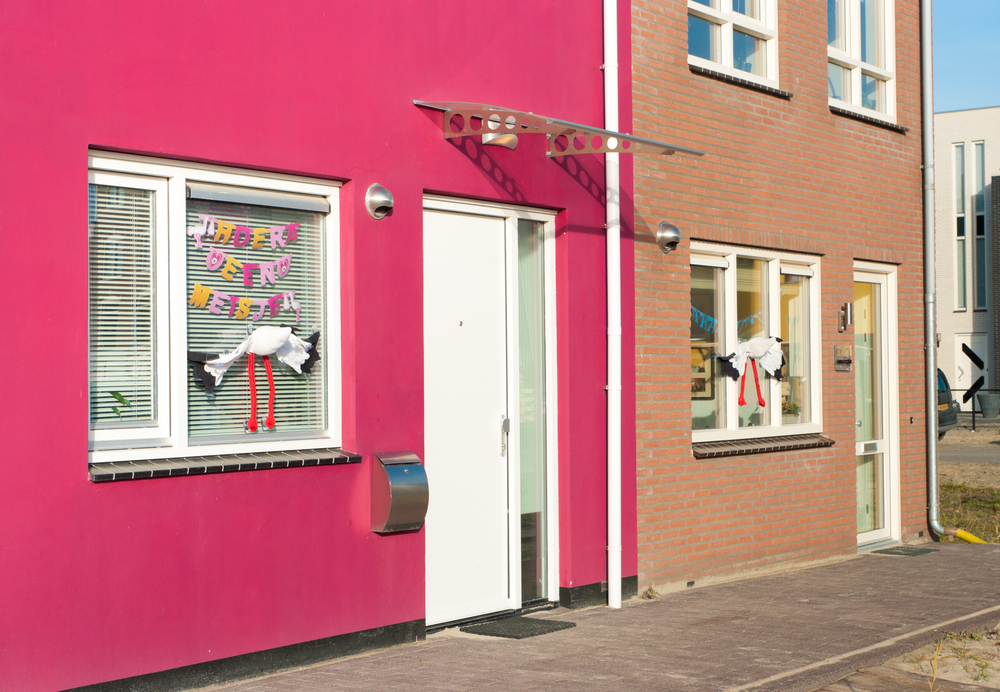Being pregnant is one of the most exciting yet frightening experiences in life — and if you happen to deliver your baby in the Netherlands, you might need to prepare yourself for a little cultural shock.
Dutchies are known for their down-to-earth attitude, and so is their baby delivery system. A Dutch pregnancy revolves around one magic word: natural (well, and eating beschuit met muisjes).
So, we plundered 24Baby and compiled this list of stuff you gotta know before that magic moment happens.
1. Maternity leave is relatively generous
Whether you’re an employee at a company or self-employed, you’re entitled to a total of 16 weeks of maternity leave (zwangerschapsverlof).
This means you get six weeks off before your due date, and another 10 once you give birth to your child.
You are also allowed to decide when you start your leave. However, make sure you tell your employer a minimum of two weeks before you intend to take your maternity leave in the Netherlands.
2. Paternity leave is a real thing
In the Netherlands, paternity leave (or partner leave, both of which are referred to by the Dutch government as geboorteverlof) is weirdly short.
You are entitled to five weeks of paternity leave (vaderschapsverlof), for which you get 70% of your regular pay — unless your employer is willing to supplement full pay.
3. Midwives are the norm…
Now, we all know the Dutch medical system can be rather laid-back. Oftentimes (more like all the time), you’re sent home with nothing but a box of paracetamol and some advice to “take it easy”.
With that being said, you can imagine Dutch doctors want to medicalise birth as little as possible. Therefore, the role of the doctor or a gynaecologist is often minimal.
Instead, Dutch women put their faith in their midwives (verloskundige).

Finding a midwife that suits your needs and wishes can be a bit of a challenge for internationals, but the easiest way is to ask your general practitioner for a good list of local midwives.
Once you find a midwife, you’ll have your first appointment between weeks six to 10 of your pregnancy (zwangerschap). This first contact is the perfect opportunity to discuss how you visualise your labour plan.
Waterbirth in your living room? Completely in the range of possibilities.
READ MORE | Parenthood in the Netherlands: advantages and challenges
Your midwife will guide you during your pregnancy and, in the end, will help you deliver your baby. If you and your midwife don’t seem to click, you can always choose to switch to another during your pregnancy.
4. …and having your baby at home is common
Home births (thuisbevalling) are very common in the Netherlands. In fact, 30% of all births take place at home, making the Netherlands the country with the highest rate of home births in the western world.
The keyword here is again natural. A lot of Dutch women find that home births are much more personal and relaxed than giving birth in the clinical environment of a hospital.
So, if you’re someone who wants to give birth at home, make sure you get yourself a kraampakket (maternity package). This box contains all the unexpected yet essential things you need for giving birth at home.

However, if the thought of a Dutch-style home birth makes you nervous, you should make it clear to your midwife that you want a hospital birth.
Most hospitals have special information events that provide you with a look inside the maternity ward and practical information about going into labour.
You should keep in mind, though, that if you don’t have a medical indication for a hospital birth, you need to pay a contribution (more than €300) for the costs.
5. No pain, no gain
Dutch women are known for their no-nonsense mentality and extend this point of view toward giving birth. Most Dutch women find pain relief to be something unnecessary.
The idea that you shouldn’t take it for granted is made painfully (pun intended) clear by Dutch hospitals.
If your baby decides to show up outside of office hours, some hospitals won’t have an anaesthesiologist available, and you can’t expect any pain relief.

With a home birth, pain relief isn’t even an option since midwives are not qualified to administer anaesthetics.
Luckily, pain is temporary… or so they say.
6. The kraamzorg is one of the best Dutch ideas yet
After the hard work of labour is done, you should be out of the hospital within hours. This seems a bit harsh, but there is no need to worry.
The Netherlands has an excellent postnatal care system: kraamzorg.
READ MORE | 9 things to expect as an expat mother in the Netherlands
Kraamzorg is a maternity care assistant, who will be your rock for at least a week after giving birth.
The kraamzorg will help with things like breastfeeding and baby care, and this type of postnatal care is unique to the Netherlands.
7. You’ll need to eat crackers with muisjes
You simply can’t have a Dutch-style birthing experience without eating beschuit met muisjes (literally meaning rusk with mice) after the baby is born.
Muisjes are anise seed sprinkles that come in the colours blue (for a boy) and pink (for a girl).

The anise in muisjes was thought to stimulate lactation and was a symbol of fertility.
It is a custom that the parents of a newborn baby give rusk with butter and muisjes to all of the baby’s visitors at home, their colleagues and the classmates of their other children.
There really is no proper celebration without some food!
8. Don’t forget your stork!
You may have noticed some interesting-looking house decorations here and there. These usually consist of the backside of a cuddly stork attached to people’s doors or windows.
No, these are not some avant-garde Christmas-Easter-Halloween decorations, these are just decorations to let your neighbours know that a stork has arrived at your home (carrying a baby, of course — how convenient).

In the Netherlands, the stork has become a symbol of childbirth, so naturally, you should have a stuffed stork to mark the occasion!
Have you given birth in the Netherlands? How was your experience? Tell us in the comments below! 👇

The whole “natural” way to me personally sounds like taking things a little too lightly. I have read an article ( in Dutch News), which said that the Netherlands is in fact the only “western” country with the highest mortality rate in births. It’s not difficult to see why. I personally know two cases of home births where everything was going “statistically” fine (they really rely on stats, it’s crazy, each person should be treated as an individual) yet babies died because they weren’t able to get to the hospital fast enough. Midwifed are great when things go as expected but in “special” cases…good luck!! Also, since living here, I have to say that the prenatal and postnatal care of women is incredibly minimum. A disservice to women, really. During my pregnancy I was left to “hope” that everything was going ok while in two other countries I know, friends of mine were receiving a routine monthly check-up (blood work, urine, physical) to monitor things like vitamin intake, sugar in blood, oxygen, microbes. Also, why the heck can’t a woman have access to a comfortable, pain-free, stress-free birth anyway? Science exists to make life easier. There are painkillers now. To me it felt like the hospice system here in NL is really trying to keep the treatment of my needs as cheap as possible. Insurance-friendly rather than pregnant-woman-friendly. Unfair system, after all that money I feed the insurance every month, the people around the insurance were pretty much sending me to give birth, if possible, standing up and as much in the forest as possible.
Well, people apparently cannot live without behaving religiously in something. Since it is so untrendy in NL to be religious in a usual sense of the term, they transform this into religious-like approach in other areas – fatalism for example 😉 but hey! Don’t forget that it is no. 1 medical system in Europe (according to some statistics)! So rest assured that it is great, and your case is just a corner case 😉
No, it is not Nr. 1 medical system in Europe for sure. I was living in Germany, they have much better one. And the insurance covers everything, there is no such own risk stuff, which I find it really ridiculous. I paid every month to insure my medical cost, wtf that I still need to pay some bs own risk.
I was sarcastic, refering mainly to this: http://www.telegraph.co.uk/news/health/expat-health/11384780/Netherlands-tops-health-care-rankings-with-UK-in-14th-place.html
Great indication of the Dutch love of statistics.
Actually the high mortality rate is a stats glitch which comes from obsessive neonatal care. Calling a childs death where many countries would have dubbed it stillborn.
Nice try, but no 😉 http://www.volkskrant.nl/wetenschap/babysterfte-in-nederland-daalt-maar-is-nog-steeds-hoog~a3447774/
According to this table, NL performs pretty bad for both stillborn and neonatal death ratings.
But you are right that statistics is easily adjustable to whatever point one want to make. Which is why statistics is bullshit.
Actually this is not true! We are not great at care for the very early born babies and in this research it was included that in the Netherlands all stillborn babies from 24 weeks and babies to have lost their lives in the first week were counted, where in most other countries they used 26 weeks gestation as limit. Plus some countries with very low infant mortality rate, had a very high maternal death rate. In the combo of both we actually do really well. The us is at third world levels with maternal death rates and being a woman of color puts you even further at risk for adverse outcomes. The article of the newspaper you’re quoting is from a newspaper that sensationalizes these half done researches and had no wish to rectify. Actually the c-section levels have risen and the home births have dropped in rates due to the papers sensationalizing this and pointing the fingers to home birth, where as research shows that for healthy mothers with healthy pregnancy’s giving birth at home gives the best outcomes for mother and baby. However I do feel it’s every woman’s choice to give birth wherever they feel best and if that is in hospital care, please do so. And it’s not the Middle Ages here, we have epidurals and other forms of pain relief available. Pregnancy is just not seen as an illness that needs excessive checkups and if woman want to birth with our pain medication, they are free to try and since it’s not so ingrained in the culture a lot of them do. And they don’t feel like they suffered! But they just feel that they are strong. I mean, biking through the rain with two kids on the bike to take them to school every day and such toughens us up I suppose. But if you’ve had a sleepless night with contractions before things really pick up we have options and we’ve got nothing to prove, so using pain relief isn’t seen as a lesser way to birth, but it’s just not as cut out from the start as in some other countries.
Totally agree with everything.
In 9 months , they haven’t checked my urine ( important as often pregnant women don’t get symptoms and they are dangerous; funny cause I normally have them every 2-3 months, weighed me, or measure my belly.
This 3 examples are pretty standard in the rest of EU countries, to check that everything goes well.
Also , here they don’t offer flu vaccination to pregnant women as they consider that we are not risk group …
This is totally opposed to what other countries such us UK, Spain or even the OMS
So I had to hear comments and pay for the vaccination apart from my insurance.
What’s more alarming , it is to hear from the midwife “ well, it is not necessary and it is also not innocuous to the baby “
The aim of doing things as natural as possible, sometimes makes the situation absurd. Getting false medical information from a profesional is outrageous. ( me being a nurse , makes it all a bit scary/ annoying/
Also, the only echo done was at 20 weeks.
And other thing that alarms me pretty much, is that postnatal check up 6 weeks after won’t be done by a gynaecologist but from a midwife.
Sometimes I Think that the Reason behind this is “saving money”. As this is all private insurance companies.
Sometimes I want to think that there is a good reason behind it , that my small healthcare professional that has worked in 2 EU countries, doesn’t get to understand.
What you describe to me just seems like you had a sub-par midwife.
In our situation they weighed my wife a few times over the months, checked blood values multiple times, measured the belly every appointment after 28 weeks etc. It’s standard to have two ultrasounds, at 12 weeks and 20 weeks and there can be more depending on the situation.
I agree with Erik: sounds like you had a bad experience but that doesn’t mean it’s the norm. I’m currently 34 weeks pregnant. Despite a healthy pregnancy I’ve had 5 echos and am scheduled for a 6th at 35 weeks. They’ve measured my sugar levels twice and plan to do so again next week, they take my blood pressure and weight at every appointment, and listen to the baby’s heart at every appointment. They discussed the pregnancy whooping cough vaccine with me at every appointment up until I had received it, and have been checking my baby’s position at every appointment (every two weeks) since 30 weeks.
Now, that said, I do pay an extra €40 a month for supplemental insurance that allows for more care during pregnancy, so it’s possible that’s why midwives have done all of this and yours didn’t. But I’m from America, so paying anything less that $500 a month for insurance is stupid cheap in my opinion. Especially since I’m not going to get hit with a $40K bill for the birthing process despite that insurance.
Hi AM, could you please write which insurance company/insurance plan you are using? I’m having trouble finding such a plan, but I don’t want to ask my doctor for additional tests every time worrying will my insurance cover them or will I gen an unpleasant surprise. Thank you!!
kraamzorg is not unique, it exists in Hungary, too and lasts many years. The person in charge pays weekly visits to the mother in the first couple of months and monthly visits later.
It is also normal in Germany.
Give a baby birth is good news for entire family and friends. People wishes and celebrates parties and try to make memorable this event by sending wishing cards.
To create wish card visit http://www.ohmyfabriq.com/ for easy approach.
I am Dutch, but had my first two babies in the US. It was fantastic, partly due to the fact that I lived on a small island with a great community. Both me and my husband stayed in the hospital for 3 days, but the room felt more like a cozy hotel room and the care was perfect. Our third child was born in the Netherlands and due to the fact I had a medical indication (second birth was a bit troublesome) I wasn’t allowed to deliver at home. I didn’t like the part in the hospital at all, but coming home to the ‘kraamhulp’ was a fantastic experience, especially with a 1-year-old and a three-year-old. She did the laundry, picked up the 3-year-old from preschool, prepared dinner and cleaned the house a bit. She also took care of visitors and of course of me and my baby girl. I cried when she left, 8 days later. All in all, the differences weren’t that huge to me.
[…] different paradigm than in The Netherlands. The Dutch think of pregnancy and childbirth as much more holistic and home-oriented (or at least non-hospital-oriented) overall, and fundamentally doesn’t treat pregnant women […]
As a Dutch woman, I have been very grateful to have given birth, in a hospital, in the United States. Had I not been in the hospital, I would have died in childbirth. After 40 hours of labor I finally delivered my son via c-section as I never dialated more then 2cm and my son was stuck in the birth canal. I would have not been so lucky had I delivered at home with a midwife. Aftercare is amazing in the Netherlands, I won’t disputed that (beschuit met muisjes are yummy too) but many things are not. And by the way, giving birth without pain medication is something straight out of the Middle Ages. How about men having a “natural” vasectomy without anesthesia- no pain no gain right?
Thanks for the article. Could you please recommend me the exact hospitals who practice the VBAC protocol in Netherlands? How much could it cost for the foreigner without medical insurance? (I am from Ukraine)
Thanks for all this info! I have a few questions I’m hoping you could help with… I’d like to have a C-section. Are there special requirements one needs to fulfil such as an approved gynocologist recommendation, do we need to pay for it privately or does my insurance ( normal Dutch insurance ) cover it?
As far as I know you can not get a C-section on request in the Netherlands. Only with medical indication (one being having had a previous C-section, but even the the hospital will try to steer you towards natural childbirth).
It is very archaic.
I can’t agree to the most comments at all. I love the Dutch system and that they treat a pregnant woman as natural and not as sick as most other countries. So why you should go to a doctor ? Woman nowadays totally lost their power in giving birth and give all responsibility to other people like doctors . Within enter the hospital they give all control to them and let them decide about their body and birth.
Giving birth is such an incredible experience and was for me the most incredible moment of my life . Thanks to the Netherlands even I was medical as my little one was in breech I could birth him calmly and in the way I decided to. No painkiller , oxytocine or other interventions . Next hopefully will be the homebirth I wished for.
Here is Indian expat version of having a baby in the Netherlands https://weavinglittlelife.com/2019/11/13/having-a-baby-in-the-netherlands/